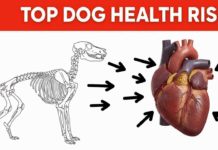Last Updated on October 1, 2025 by Dogs Vets
🐶 How Much Should I Feed My Dog? Dog Food Calculator Guide
Feeding your dog the right amount of food is one of the most important parts of pet care. Too little food can leave your pup underweight, lacking energy, and prone to health issues. Too much, and you risk obesity, diabetes, joint problems, and a shorter lifespan. It’s a delicate balance — and one that can feel confusing, especially with so many dog food brands, feeding charts, and opinions floating around.
That’s why tools like our Dog Food Calculator exist. They give you a science-backed, personalized estimate of how much your dog should be eating each day in calories, grams, and cups of food. In this guide, we’ll break down everything you need to know about dog feeding: from calorie requirements to portion sizes, and why a calculator can make your life easier.
🔑 Why Feeding the Right Amount Matters
Nutrition is the foundation of your dog’s health. While quality food is important, quantity is just as critical. Here’s why portion control matters:
- Weight Management – Obesity is one of the leading health issues in dogs. Extra weight puts stress on the joints, heart, and organs.
- Energy & Performance – Dogs need enough calories to fuel play, exercise, and everyday activity.
- Growth & Development – Puppies require more calories than adults to support bone, muscle, and brain development.
- Longevity – Studies show that dogs fed proper portions live longer, healthier lives.
🧮 How to Calculate Dog Food Portions
Vets use two formulas to estimate a dog’s calorie needs:
- Resting Energy Requirement (RER):
RER = 70 × (body weight in kg ^ 0.75) - Maintenance Energy Requirement (MER):
MER = RER × multiplier
The multiplier depends on your dog’s age, activity level, and whether they are neutered or intact.
Common multipliers:
- Neutered adult: 1.6 × RER
- Intact adult: 1.8 × RER
- Puppy (under 4 months): 3 × RER
- Puppy (4+ months): 2 × RER
- Weight loss: 1.0 × RER
- Working dogs: up to 6 × RER
🐕 Example Calculation
Let’s say you have a 20 kg neutered adult dog.
- Step 1: RER = 70 × (20 ^ 0.75) ≈ 662 kcal/day
- Step 2: MER = 662 × 1.6 = 1059 kcal/day
That means your dog needs about 1060 calories per day to maintain a healthy weight.
If your food is 350 kcal per cup, divide:
- 1060 ÷ 350 ≈ 3 cups per day
📊 Why Use a Dog Food Calculator?
While you can do the math by hand, a Dog Food Calculator simplifies the process. Just input your dog’s weight, life stage, neuter status, and food calorie content, and it instantly tells you:
- Daily calorie needs (kcal)
- Grams of food per day
- Cups of food per day
- Portion size per meal
This removes the guesswork and helps ensure your dog gets the right amount every time.
🐶 Feeding Guidelines by Age
Puppies
Puppies need 2–3 times more calories than adults. Their food should be high in protein and fat, and divided into 3–4 meals per day.
Adult Dogs
Most adults need 1.6–1.8 × RER, depending on activity. Split food into 2 meals per day for better digestion and energy balance.
Senior Dogs
Older dogs are usually less active and may need fewer calories to prevent weight gain. However, they still require nutrient-rich food to support aging joints and organs.
🍲 Wet vs. Dry Dog Food Calories
- Dry kibble: Usually 300–450 kcal per cup
- Wet food (canned): Around 300–400 kcal per 13oz can
- Raw diets: Calorie-dense, depending on ingredients
Always check the label for kcal per cup or kcal per kg — that’s the key to using a calculator accurately.
⚠️ Common Feeding Mistakes
- Free-feeding (leaving food out all day) – Often leads to overeating and obesity.
- Not checking the label – Different foods have different calorie densities.
- Guessing portions – A “cup” isn’t always the same size. Use a standard measuring cup.
- Too many treats – Treats should be no more than 10% of daily calories.
- Not adjusting with age – Puppies, adults, and seniors all have different needs.
🧑⚕️ When to Adjust Portions
- If your dog is gaining too much weight, reduce food by 10–20%.
- If your dog is losing weight or looks underfed, increase by 10–20%.
- Always use the Body Condition Score (BCS) chart from your vet as a guide.
🌟 Benefits of Using the Dog Food Calculator
- Personalized feeding plan
- Supports healthy weight management
- Helps avoid obesity-related illnesses
- Quick, science-based results
- Easy to update as your dog grows or lifestyle changes
🐾 Final Thoughts
Feeding your dog the right amount of food doesn’t have to be confusing. With the Dog Food Calories Calculator, you can easily determine how much to feed in cups, grams, and calories per meal. It’s a simple, reliable way to ensure your pup gets the nutrition they need — no more, no less.
Remember: This calculator provides estimates, not prescriptions. Always monitor your dog’s weight and body condition, and check with your vet for personalized advice.
Dog Food Calculator
Every dog is different. This calculator gives estimates for average adult dogs at average activity (about 1.6 × RER). Please reduce or increase feeding as needed.























